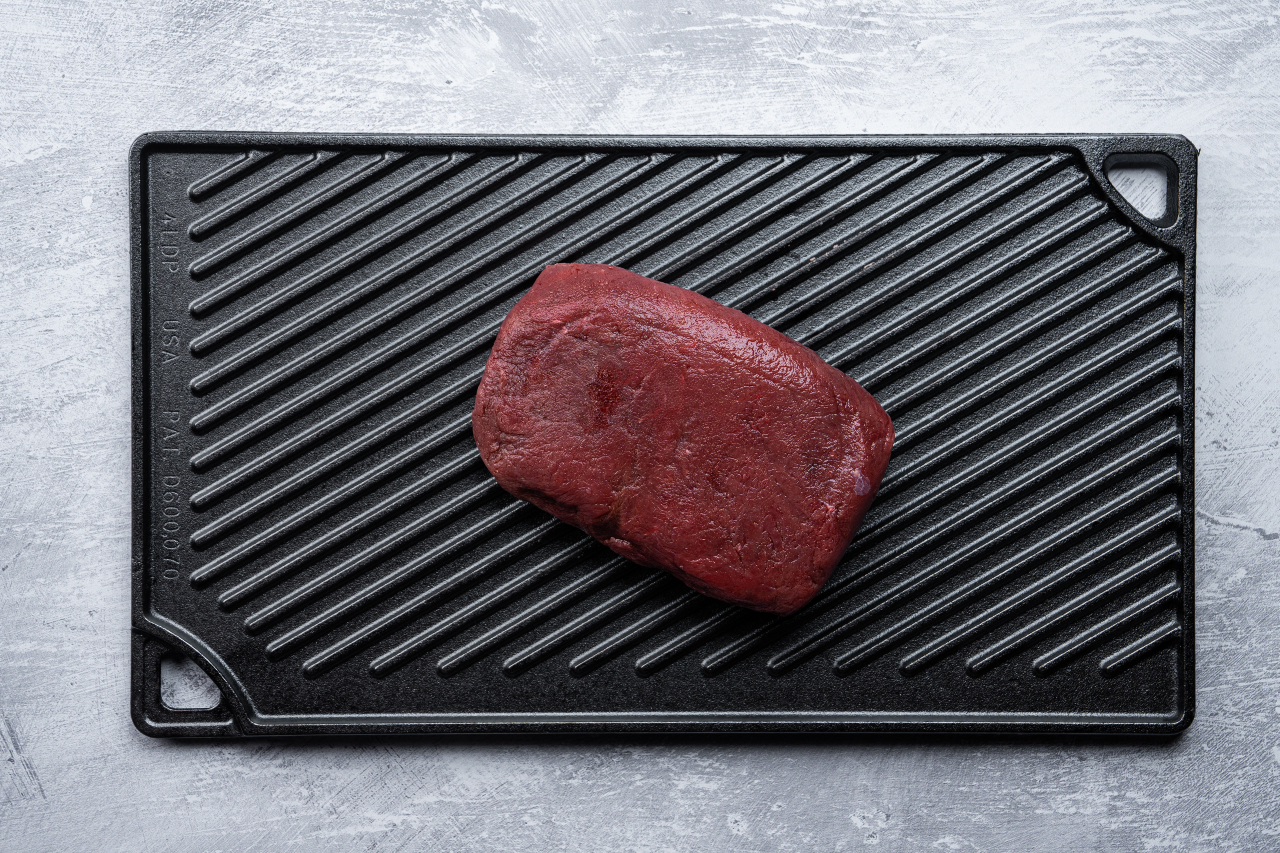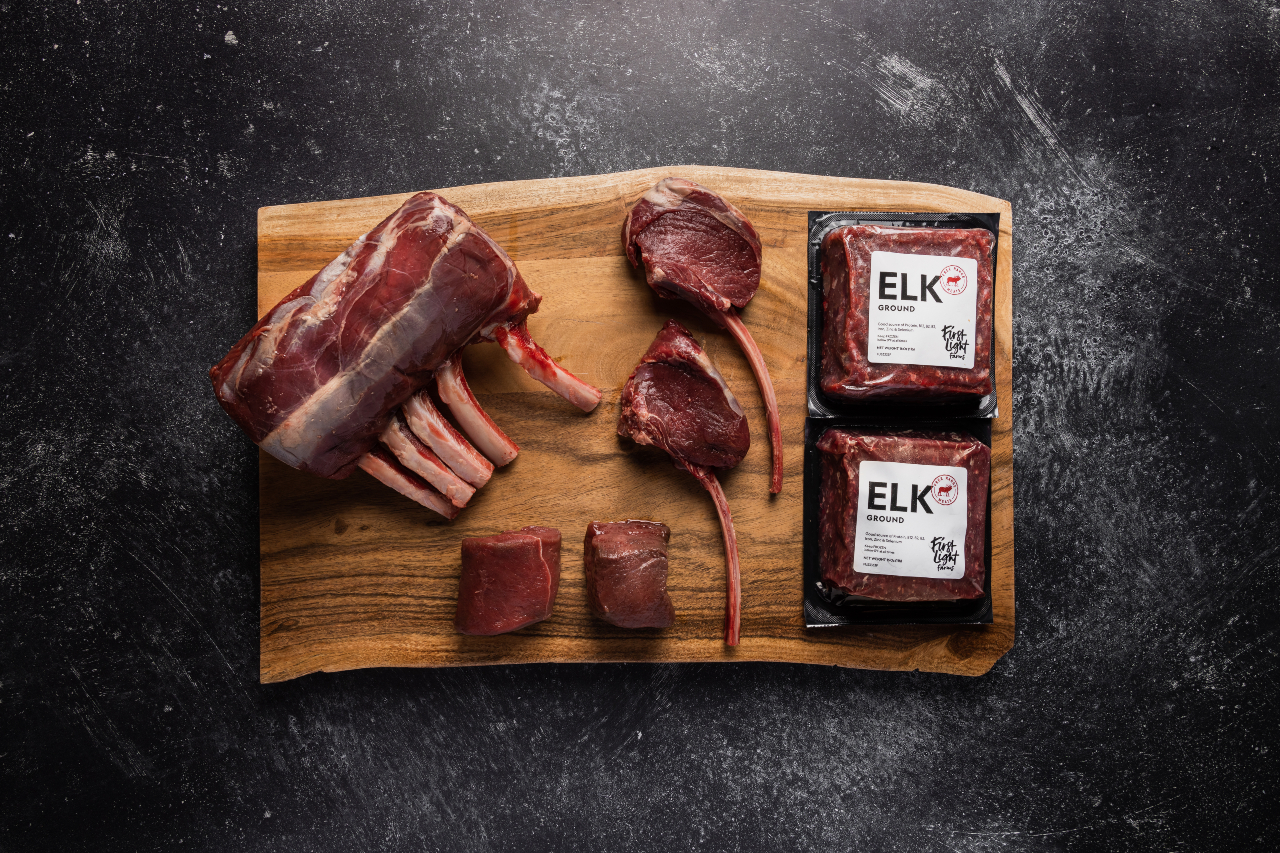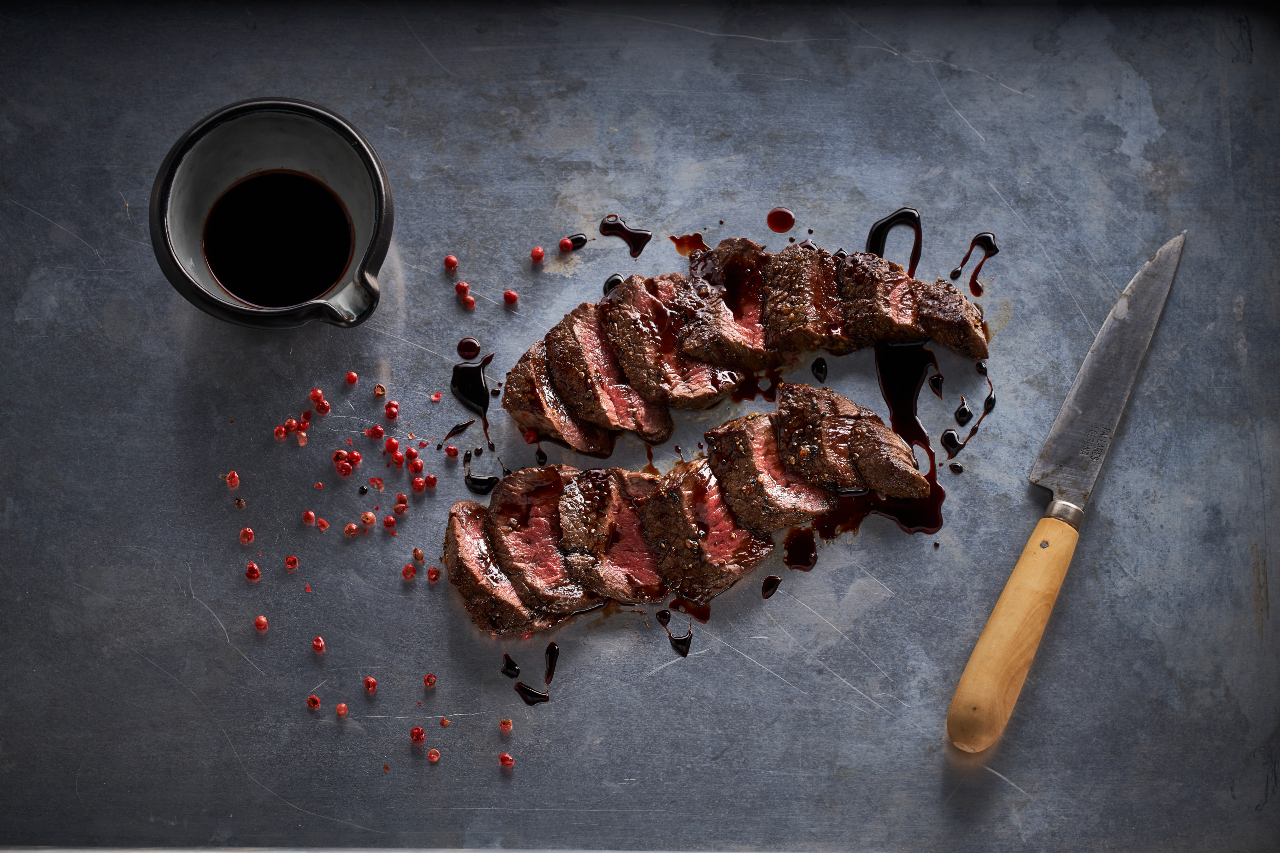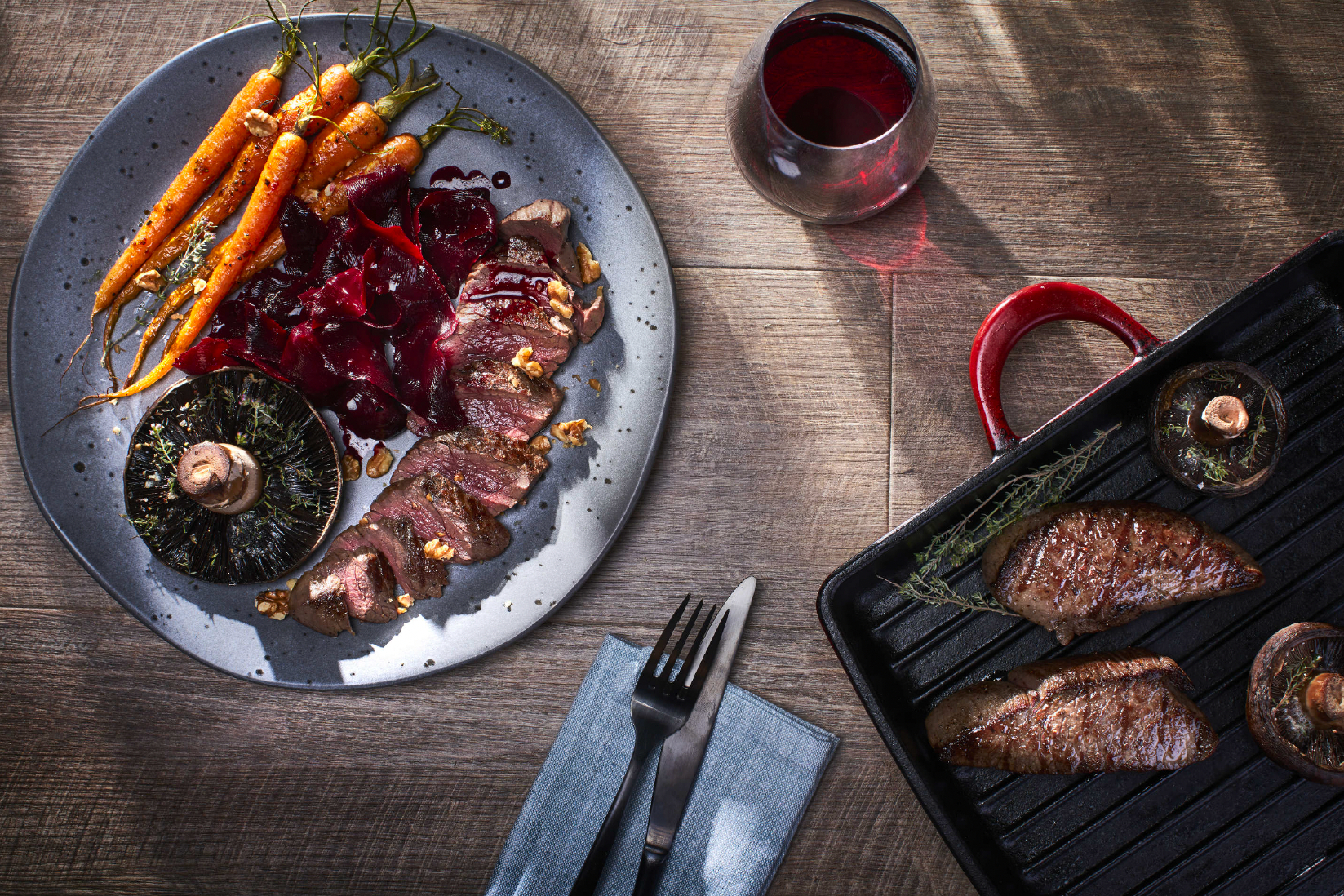
If you’re looking for a red meat alternative to beef that’s delicious and packed with nutrients like Omega-3 fatty acids, protein-packed elk might be the answer. A great place to get pasture-raised elk delivered is First Light Farms. This New Zealand-based company raises 100% grass-fed wagyu, venison, and, most recently, elk, all deliverable to your front door. First Light Farms sent us several of their items to try, and we interviewed them to learn all about this must-try red meat.
“While it may seem unexpected, elk is also an excellent choice for summer grilling,” says First Light Farms.
Elk cuts

While elk is often compared to venison, another healthy red meat, it’s important to remember the size difference. “A full-grown New Zealand elk bull will tip the scales over at 750 pounds, but you wouldn’t want him served up for dinner!” First Light Farms explains. “The average weight of the prime animals raised for harvest averages 175 pounds, and they are 26 months old.”
For First Light, their recommendation for elk newcomers is to start with ground elk, which can easily replace beef in burgers or chili. Examining the ground elk (which comes in one-pound blocks), we noticed the incredible leanness of the grind, exceeding by eye test, 90/10 ground beef. However, if you’re looking for something more show-stopping, go for the elk tenderloin or elk rib rack (the equivalent of a standing rib roast or prime rib).
Elk cooking tips

One thing First Light Farms is keen to highlight is that elk is not difficult to cook. “There is not a lot of education required around elk cooking techniques and recipes,” says First Light Farms. “The reality is if you can cook a beef steak, you can cook elk. The most important thing is to not overcook it as it is very lean.”
We tried both the elk medallions and ground elk, seasoning them simply with only salt. Because it’s so lean, we took care not to overcook it (if you’re using a meat thermometer, aim for an internal temperature of 135 degrees Fahrenheit. In our case, we did not since the medallions were relatively small). For both, we cooked to a medium-rare. We found the meat to be extremely clean-tasting with virtually no gamey aftertaste, very different than wild elk, which is substantially stronger-tasting than the pasture-raised elk at First Light Farms.
Elk leg steak with portobello mushrooms and beetroot relish

This recipe from First Light Farms originally featured venison, but elk is a great substitute. Like venison, elk is best cooked to medium-rare.
Ingredients
For beetroot relish
- 1 large beetroot – washed and rough skin removed
- 2 tbsp olive oil
- 2 cloves garlic – finely chopped
- 2 cups red wine
- 1/4 cup orange juice
- 1 tbsp balsamic vinegar
- 1/4 tsp salt
- 2 tbsp sugar (preferably brown)
- 2 pinches chili powder
For portobello mushrooms
- 8 medium-large portobello mushrooms – washed
- 2 cloves garlic – finely chopped
- 1 1/2 tbsp butter – softened
- 4 sprigs thyme
- Salt and pepper
For the elk
- 1 1/3 pounds First Light Farms elk leg – cut into 1″ thick steaks
- Mild vegetable oil (or mild olive oil)
- Salt and pepper
- 2 tbsp lightly toasted walnut pieces
Method
For beetroot relish
- Peel entire beetroot into short ribbons using a potato peeler (or grate instead).
- Gently heat olive oil in a pot on low heat and sauté the garlic until fragrant.
- Add the remaining ingredients and bring to a simmer (with lid off) for approximately 40 minutes, or until the beetroot is soft and glossy and the wine has reduced to almost nothing. Season with salt and pepper if required. This relish will store in the fridge for up to a week.
For mushrooms
- Preheat oven to 350 F and place mushrooms top down on an oven tray.
- Mix the butter and chopped garlic, spread mixture evenly over the mushroom gills.
- Strip leaves off the thyme and sprinkle over the mushrooms, then season with salt and pepper.
- Bake mushrooms for 15-20 minutes or until they are slightly shriveled.
For elk
- Bring steaks to room temperature and preheat oven to 350 F.
- Brush steaks with oil and season generously with salt.
- Heat an oven proof frying pan on high and sear each side of the steak until well caramelized (approx. 1-2 minutes each side).
- For 1″ thick steaks, place in the oven for 4 minutes, then remove steaks from pan and allow to rest in a warm place for 3-5 minutes before serving.
To serve
- Serve elk sliced across the grain with mushrooms, a good dollop of beetroot relish and a sprinkling of toasted walnuts.



